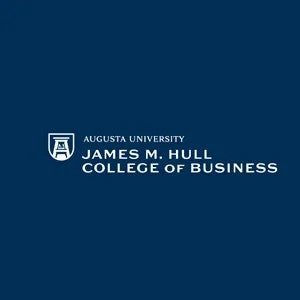Gov. Henry McMaster (R) highlighted business growth, economic development, and education in his 2025 State of the State address.
McMaster said the state’s attractive climate for business has translated to more than $44.7 billion in new capital investment and 92,000 jobs. That’s resulted in a revenue surplus of more than $1.8 billion.
He said 2024 is continuing the pattern created over the previous seven years.
“It was no surprise that 2024 was once again a successful year for economic growth and investment,” he told the joint session of the state legislature. “In fact, 2024 was the third best in state history with $8.2 billion in capital investment and 5,500 new jobs announced. This followed the second-best year in 2023, and the best year in 2022.”

In the response from the South Carolina Democratic Party, state Senator Margie Bright Matthews (D-District 45) challenged the governor’s rosy economic outlook.
“The truth is, our economy can’t be as robust as you’ve described Governor since our finance committee recently uncovered a $1.8 billion discrepancy in our treasury that ultimately led to the resignations of the Comptroller General and the auditor,” she said. “Last year, Treasurer Loftus testified under oath that he knew where the $1.8 billion was and that it had earned over $250 million in interest. Now they say the $1.8 billion never even existed, imaginary money. What is the truth? Governor, how can our state’s economy thrive if you are not willing to demand transparency and hold the treasurer accountable?”
Looking at the businesses that began calling South Carolina home in 2024, McMaster listed Information Technology, Automotive and Aerospace and Aviation as the three leading industries based on capital investment.
However, he said examining the process for businesses to obtain permits must be re-visited and a current backlog of permit decisions be resolved.
“I am recommending an appropriation of $13.7 million so the department (of Environmental Services) can hire and train the employees they need to get this done,” he urged. “I believe you should be able to mark your calendar, to circle that date with a bright red marker, and know when a decision will be made. Our state’s laws and regulations are designed to protect the public and also ensure that individuals have the freedom to pursue their chosen careers without undue interference.”
He also recommended re-examining the process for issuing professional and occupational licenses. There are more than 40 boards regulating half a million people in the workforce. Those include accountants, barbers and cosmetologists, pharmacists, realtors, and social workers.
McMaster said the licensing process has become more complicated and burdensome, and suggested a pause while the laws governing the boards are reviewed.
The governor also called for tort reform and the creation of a civil justice system that protects businesses while allowing for just compensation for injured parties. Gov. Brian Kemp issued a similar challenge to the 2025 legislative session in Georgia.
Democrat Bright Matthews said it was time to focus on South Carolina’s needs.

“South Carolina is small to our border states, yet we seem to legislate each year based upon the scorecards of bordering states like Georgia, as it takes on school vouchers and tort claims issues,” she said. “It’s time for you to stop peaking at Governor Kemp’s report card so that we can begin to tackle our own challenges right here in South Carolina. Challenges like funding our mandates, educating our workers, making innovative infrastructure investments, and ensuring that housing and health care are affordable and accessible.”
McMaster repeated two goals he outlined in his recent budget proposals, including immediately dropping the personal income tax to 6% while looking for ways to eliminate the tax altogether.
He still wants the legislature to accelerate the growth of teacher starting salaries to $50,000 this year, rather than stick to the original timeline of raising it by 2026.
He also wants the state’s School Resource Officer grant program to be fully funded. The program currently provides 1,106 districts with funds to hire full-time SROs. McMaster wants grants to cover the remaining 177 schools without an SRO.






